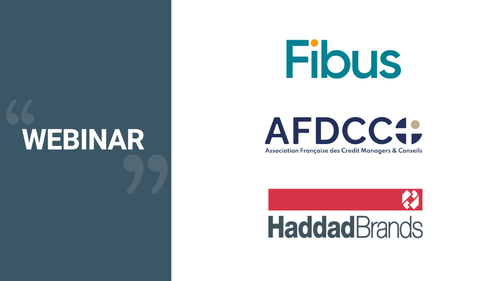

What is really meant by “deconsolidation” of accounts receivables?
When a factoring contract is called “non-recourse” for accounting purposes, accounts receivables on the balance sheet are reduced by the amount of the assigned receivables. Thus, accounts receivables are converted into cash without impacting the company’s debt level.
While the deconsolidating nature of a factoring programme has many advantages, it is not the norm for all companies using this type of financing. Furthermore, today, it is more often used by listed companies and mid-cap companies. However, more and more SMEs are now accessing it.
While the deconsolidating nature of a factoring programme has many advantages, it is not the norm for all companies using this type of financing. Furthermore, today, it is more often used by listed companies and mid-cap companies. However, more and more SMEs are now accessing it.
Benefits of non-recourse factoring
- DSO (days sales outstanding) and WCR (working capital requirement) are significantly reduced. The company then has the cash to finance its organic or external growth.
- Improved leverage ratio (net debt/EBITDA) and financial autonomy ratio (net debt/equity) ratio.
Nevertheless, the absence of recourse on the credit risk does not mean that the factor has no recourse on the assigned receivables! Quite the contrary, other type of recourses exist (disputed receivables, VAT, etc.) and remain contractual. They lead to a detailed analysis of the factoring contract and the credit insurance policy by the auditors of the assigning company.
Can I transfer my entire customer risk (and therefore potential losses) through a non-recourse factoring programme?
The transfer of customer risk to a factor requires that it accepts the risk and that it is covered by a credit insurer. Thus, the factor is more demanding on the quality of the credit management of the assigning company, from the clients’ selection to the collection processes. As with any factoring or credit insurance contract, the more that the customer risk is controlled, the more the programme will be optimised.
Consequently, the portion of trade receivables that can be deconsolidated is limited to:
**
Consequently, the portion of trade receivables that can be deconsolidated is limited to:
- The outstanding amounts covered by the credit insurance at the time of the transfer of accounts receivables
- The portion of business subject to possible disputes / returns of goods / various discounts / specific invoicing processes, which reduces the receivables eligible for deconsolidation.
**
Our experience in non-recourse factoring
Today, deconsolidation operations are the main source of growth in the factoring market. All factors and credit insurers have adapted their contracts to the requirements of the major auditors. But there are many areas of disagreement, and each contract can be negotiated at length between the parties. This trend is even more evident at Fibus: 80% of our specifications in the tender phase include deconsolidation as an essential criterion for the company. Incidentally, we regularly encounter the same auditors in our negotiations, which often facilitates discussions!
In addition, we have gained experience working with French companies but also for international groups based in several countries, subject to IFRS and US GAAP.
In addition, we have gained experience working with French companies but also for international groups based in several countries, subject to IFRS and US GAAP.
Find out more
It is obviously impossible to cover all the questions raised by deconsolidating factoring in a single article. Each contract is unique and adapted to the specificities of each company. In addition, each accounting standard requires a different analysis (IFRS, French GAAP, US GAAP, etc.). It is advisable to carry out a detailed study of your business and your accounts receivables to estimate your potential benefits from non-recourse factoring.
As a specialised broker, Fibus provides you with a dedicated team to studying, setting up and negotiating your factoring contract.
Do you have any questions or need more information? You can fill in our contact form.
As a specialised broker, Fibus provides you with a dedicated team to studying, setting up and negotiating your factoring contract.
Do you have any questions or need more information? You can fill in our contact form.
These articles may interest you

How Chimirec unlocked the full potential of its factoring with ARI Trade, by Fibus Digital
With ARI Trade, the Chimirec Group has reduced the time spent managing its factoring operations from 4 days to 1.5 days per month — representing a total time saving of 30 days per year.
Additional benefits for Chimirec’s CFO include improved working capital, a consolidated view across 15 factoring contracts, and enhanced receivables traceability.
Additional benefits for Chimirec’s CFO include improved working capital, a consolidated view across 15 factoring contracts, and enhanced receivables traceability.

How the Credit Manager safeguards the company’s cash flow
A function at the heart of financial stability The Credit Manager’s role extends far beyond preventing bad debt: today, they act as the true conductor of the order-to-cash process, ensuring the company maintains healthy, predictable, and actively managed cash flow. We
spoke with Thibaut Robet, CEO of Fibus, a firm specialising in order-to-cash management.
spoke with Thibaut Robet, CEO of Fibus, a firm specialising in order-to-cash management.

How can credit insurance support growth in a sector under pressure?
Economic difficulties are mounting and weighing more heavily on certain sectors: how can you make the Credit Manager a business partner who supports the company's growth? Discover the testimony of HADDAD BRANDS EUROPE in the webinar hosted by Alexia Monteillet, Credit Risk Manager at HADDAD BRANDS EUROPE, and Marc Chaquès, Credit Insurance Director at Fibus, in partnership with the AFDCC.
Contact us, so that, together, we can find the best solution for financing your accounts receivable.
Write us
